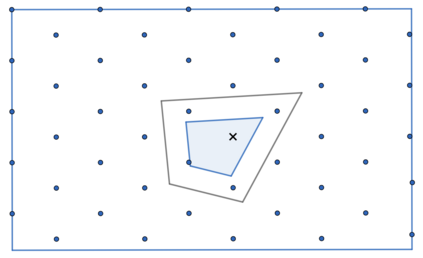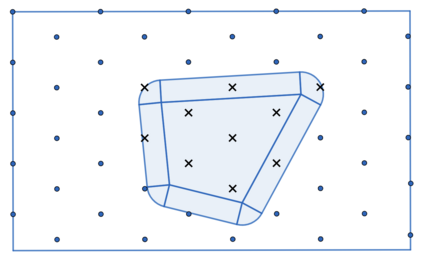According to Haar's Theorem, every compact group $G$ admits a unique left-invariant Borel probability measure $\mu_G$. Let the Haar integral (of $G$) denote the functional $\int_G:\mathcal{C}(G)\ni f\mapsto \int f\,d\mu_G$ integrating any continuous function $f:G\to\mathbb{R}$ with respect to $\mu_G$. This generalizes, and recovers for the additive group $G=[0;1)\mod 1$, the usual Riemann integral: computable (cmp. Weihrauch 2000, Theorem~6.4.1), and of computational cost characterizing complexity class #P$_1$ (cmp. Ko 1991, Theorem~5.32). We establish that in fact every computably compact computable metric group renders the Haar integral computable: once using an elegant synthetic argument; and once presenting and analyzing an explicit, imperative algorithm. Regarding computational complexity, for the groups $\mathcal{SO}(3)$ and $\mathcal{SU}(2)$ we reduce the Haar integral to and from Euclidean/Riemann integration. In particular both also characterize #P$_1$.
翻译:根据Haar's Theorem的理论, 每一个紧凑集团$G$都接受一种独特的左向异差博雷尔概率测量 $\ mu_ G$。 让普通的 Riemann 集成($G$) 表示功能 $_ G:\ mathcal{C} (G)\ ni f\ mappsto\ f\ f\, d\ mu_ G$ 整合任何连续函数 $f: g\to\ mathb{R} $\ mu_ G$。 这个概括化为添加组 $G=[0; 1\ mod 1$, 回收。 普通的 Riemann 集成($$) : compreputeal (w. Wehrach 2000, Theorem~ 6. 1) 和计算成本 复杂等级# P$1 (mp. 1991, Theorem~ 5.32) 。 我们确定, 实际上, 每一个可比较的集成的集成的集成的矩阵组合都使Haar (P) commun compubly concompubild: 一旦使用优美的合成论点; ; 并且提出并分析明确的、 $_ calalal nual nualal $1} 和 exigal cal cal cal exal rublegal rublexus and $ & am_ am_ am_ am_ am_ am_ am_ am_







